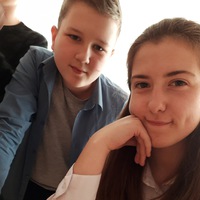
Match the predicates (1-9) with their definitions (a-d) a. Continuous Active в. Perfect Active с.
Perfect Passive d. Simple Passive 1. is carried out 2. will be reading 3. has been discovered 4. was controlled 5. will have found out 6. had treated 7. were determining 8. have been operated 9. had had 0
0
 0
0
Ответы на вопрос
 Внимание! Ответы на вопросы дают живые люди. Они могут содержать ошибочную информацию, заблуждения, а также ответы могут быть сгенерированы нейросетями. Будьте внимательны. Если вы уверены, что ответ неверный, нажмите кнопку "Пожаловаться" под ответом.
Внимание! Ответы на вопросы дают живые люди. Они могут содержать ошибочную информацию, заблуждения, а также ответы могут быть сгенерированы нейросетями. Будьте внимательны. Если вы уверены, что ответ неверный, нажмите кнопку "Пожаловаться" под ответом.

1. d, потому что Past Simple и действие выполняется над объектом.
2. a, потому что Future Continuous и действие выполняет объект.
3. c, потому что Past Perfect и действие выполняется над объектом.
4. d, потому что Past Simple и действие выполняется над объектом.
5. b, потому что Future Perfect и действие выполняет объект.
6. b, потому что Past Perfect и действие выполняет объект.
7. a, потому что Past Continuous и действие выполняет объект.
8. c, потому что Past Perfect и действие выполняется над объектом.
9. b, потому что Past Perfect и действие выполняет объект.
 0
0
 0
0

Sure! Let's match the predicates with their definitions:
a. Continuous Active: 7. were determining Definition: Refers to actions that are ongoing or in progress at a specific time in the past.
b. Perfect Active: 3. has been discovered Definition: Refers to actions that were completed in the past and have an impact on the present.
c. Perfect Passive: 1. is carried out Definition: Refers to actions that were completed in the past and continue to have an effect in the present, with the emphasis on the result rather than the doer.
d. Simple Passive: 4. was controlled Definition: Refers to actions where the subject is the receiver of the action, rather than the doer. It is in a general or unspecified sense.
Additional Information: e. Future Passive: 5. will have found out Definition: Refers to actions that will be completed in the future, with the emphasis on the result and the subject being the receiver of the action.
f. Past Perfect Active: 6. had treated Definition: Refers to actions that were completed before a specific time in the past.
g. Present Perfect Active: 2. will be reading Definition: Refers to actions that started in the past and are continuing into the present, or actions that have just been completed and have relevance to the present.
h. Future Perfect Active: 8. have been operated Definition: Refers to actions that will be completed before a specified time in the future.
i. Past Perfect Passive: 9. had had Definition: Refers to actions that were completed before a specific time in the past, with the subject being the receiver of the action.
 0
0
 0
0
Похожие вопросы
Топ вопросов за вчера в категории Английский язык
Последние заданные вопросы в категории Английский язык
-
Математика
-
Литература
-
Алгебра
-
Русский язык
-
Геометрия
-
Английский язык
-
Химия
-
Физика
-
Биология
-
Другие предметы
-
История
-
Обществознание
-
Окружающий мир
-
География
-
Українська мова
-
Информатика
-
Українська література
-
Қазақ тiлi
-
Экономика
-
Музыка
-
Право
-
Беларуская мова
-
Французский язык
-
Немецкий язык
-
МХК
-
ОБЖ
-
Психология
-
Физкультура и спорт
-
Астрономия
-
Кыргыз тили
-
Оʻzbek tili


























